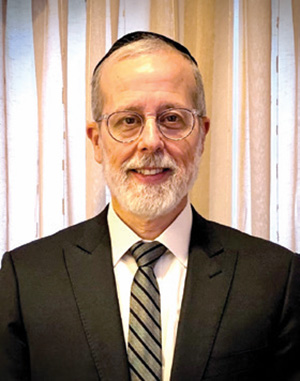
I have often been asked why there are so many unhappy marriages today. The question makes me wonder about just how prevalent this phenomenon is. As members of our communities, we likely have observed painful and unfortunate examples of marital discord and divorces. The most current research surveys have also confirmed significant levels of marital problems. One such survey found that the divorce rate in the Orthodox community is approximately 10%. Another marital-satisfaction survey conducted by the Orthodox Union several years ago found that 13% of respondents rated their marriage as fair or poor.
The good news is that the overwhelming number of marriages within the Orthodox community score much higher when compared to the national divorce rate and marital-satisfaction rate. The bad news is that even our lower percentage of distressed marriages is still troubling. The stability of marriages has to be taken seriously since shalom bayis, a harmonious home, is the foundation upon which healthy, vibrant, and religious families and communities are built.
Fortunately for us, we have the Torah, which serves as our blueprint for everything, including our guide for building meaningful and positive relationships. If we learn from the Torah and follow its lessons, we can realize our dream of living with a spouse with whom feelings of love, respect and admiration grow deeper and stronger over time.
The Torah teaches us that the key to having a successful marriage is not wealth, professional and social standing, level of education, family stature or physical beauty. Although these may be relevant considerations, they are not what will ultimately lead to a satisfying and loving relationship. Rather, middos tovos, refined character traits, are the key to having a successful marriage. They are the foundation for a respectful and caring relationship, and the impetus for a couple’s ever-growing admiration and love for each other.
The marriage of Yitzchak and Rivka is a prime example of how a couple builds love and mutual respect within their relationship. When Eliezer, the servant of Avraham, brought back Rivka to be a wife to Yitzchak, the verse tells us that “Yitzchak brought her into the tent of Sarah, his mother; he married Rivka, she became his wife, and he loved her.” The commentary Targum Onkelos explains that the pasuk is telling us the process Yitzchak went through that led to his marriage to, and love for, Rivka. Yitzchak first brought her into the tent where he observed her demeanor. Only after this examination when he found Rivka to be virtuous did he decide to marry her. Yitzchak’s love only came after those earlier steps. The Brisker Rav, Rav Yitzchok Zev Halevi Soloveitchik, asked: Why did Yitzchak have to first examine Rivka’s behavior before deciding to marry her? The miracles that occurred for both Eliezer and Rivka were incontrovertible evidence that Rivka was the one chosen by God to be a wife for Yitzchak. This was literally a match made in heaven. What more evidence did Yitzchak need that Rivka was to be his wife whom he would come to love?
The Brisker Rav answered that we learn from this a very fundamental lesson about marriage; one does not rely upon miracles or heavenly signs to choose the right person for marriage. The decision has to be based upon the merit of observable actions and behaviors. They should be indicative of a good person with favorable character traits such as kindness, compassion, sincerity and modesty. This consideration has to be at the core of the choice one is making. All other preferences that one might have are secondary to this requirement.
This is why the verse predicates Yitzchak’s love for Rivka upon the investigation into Rivka’s middos. It was only after Yitzchak saw the goodness of Rivka that he decided to marry her and came to love her. His love for her grew out of his admiration of her virtuous character traits, which he increasingly came to appreciate and admire with time.
If the quality of our marriages is to improve, the emphasis has to be placed upon the qualities that are of primary value in ourselves and our spouses. By identifying and focusing upon the middos tovos of each other, a couple’s marital satisfaction and happiness will continuously grow stronger.
Rabbi Avrohom Herman is the rabbi of the JEC Elmora Ave Shul in Elizabeth. He is also an LCSW in private practice specializing in marital and premarital couples therapy, anxiety and OCD disorders. He can be reached by email at [email protected] or at 908-220-7317.










